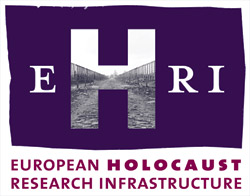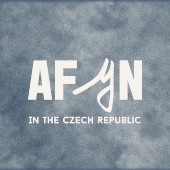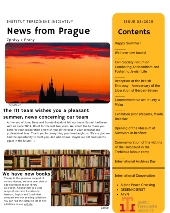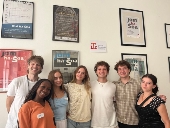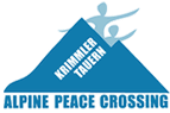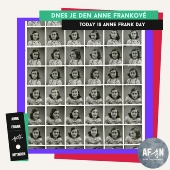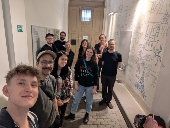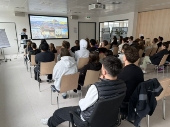Finding ways of constructive dialogue in polarising societies
- Project duration: 1.1.2020 – 30.6.2022
- Head of the project: Institut Terezínské iniciativy (ČR)
- Participating institutes: Anne Frank House (NL), Nadácia Milana Šimečku (SR), Anne Frank Zentrum (D)
Project "Let me be as I am. Finding Constructive Dialogue in a Polarized Society" was created by sharing the educational experiences of four organizations from four countries working with an exhibition dedicated to the life of Anne Frank and the stories of today's young people facing prejudice and discrimination. We see that there are issues that divide us in our societies, where emotions prevail over arguments, where we are silent rather than talking about them. The aim of the project is to look for ways and methods to talk about these issues, not only with young people, without mutual hatred and judgement. We are looking for ways to move the discussion from hate speech to constructive dialogue.
Using examples from history, we show how the polarisation of society contributes to discrimination, the violation of equal rights of individuals and groups and the rise of authoritarian and totalitarian societies. The project is based on the principles of appreciating different value perspectives, using comparative approaches and sharing experiences from different European countries.
Outcomes:
- A set of recommendations and methods for dealing with potentially polarizing issues in classrooms and public discourse. We will draw on the experience of experts from the participating countries, teachers and students to develop the recommendations and methods. Specific areas of recommendations will emerge from the results of a survey of teachers from the participating countries. Each set of recommendations will be complemented by examples of good practice.
- Workshops for teachers on recommendations and methods.
- Workshops for pupils and validation of the proposed methods.
Target groups:
- Professionals involved in education: methodologists, didacticians, historians, sociologists and others.
- Educators: teachers, trainers, lecturers and others working in the field of education.
- Youth.
- 180 young people trained in constructive communication techniques;
- 30 teachers trained in how to address polarizing issues in the classroom;
- 4,400 visitors to the Anne Frank exhibition who are aware of the benefits of diversity in society.
Preparatory activities
During the preparation of the project, online meetings of the project team were held on a regular basis, but at least once per month. We coordinated program of events, survey among educators and its results and the content of the guidelines published in the end of the project. Also, team meetings were held, at least once a year, usually ITI, AFH and NMŠ personally and AFZ online:
- 6. January 2020 in Prague (CZ), participants 2 from Czech republic, 2 from Slovakia and 2 from Netherlands, 1 from Germany (online). We made schedule of Activities, we agreed at responsibilities for program content and guidelines, we set interim deadlines.
- 21. August 2020 in Brno (CZ), participants 3 from Czech republic, 2 from Slovakia and 2 from Netherlands, 1 from Poland and 1 from Germany.
- 13. November 2021 in Amsterdam (NL), participants 2 from Czech republic (1 online), 1 from Slovakia (online) 3 from Netherlands, 1 from Germany (online). Due to the last minute quarantine in the Anne Frank House team we needed to arrange new term of the Youth training, inform participants, reschedule trainers program and modify terms for outcomes.
- 5. June 2022 in Prague (CZ), participants were 2 from Czech republic, 2 from Slovakia and 2 from Netherlands, 1 from Germany.
- 21.-23. Jun 2022 in Amsterdam (NL), participants were 3 from Czech republic, 1 from Slovakia and 4 from Netherlands. We evaluated the project and agreed at future cooperation, especially at the support for youth teams and possible translation of Stories that Move in Czech language.
Survey among educators
Before the first event - we created a questionnaire in the expert group meeting, in which we asked educators from participating countries about polarizing topics among their students and how they solve situations of non-personal conflict. We asked what they would need to be able to prevent these situations or work better with groups that are already conflicting due to the composition of the students.
We shared the questionnaire with more than 400 educators who cooperate with our organizations in February 2020. The same questionnaire was sent to educators also in May 2022. We received a total of 64 responses in 2020 and 25 responses in 2022.
Survey results:
In the year 2020 polarizing topics varied from country to country in a slightly different way. Most frequently mentioned topics were the relations between the majority society and Roma community (16% SK, 18% CZ) and other minorities including LGBTQ+ (12% CZ, 10% SK). The second strongest polarizing topic was social status - the topics of poverty, white privilege, education (6% CZ, 14% SK, 23% NL+DE), followed by topics concerning relations with foreigners / migrants / refugees (24% CZ, 3% SK, 6% NL+DE), political parties and politicians (6% CZ, 25% SK, 11% NL+DE), which partially overlaps with racism and anti-Semitism (6% CZ, 9% SK, 23% NL+DE).
In 2022 the answers didn't show a big difference between countries. The reason for that could be the small number of received answers. Most answers were related to minority topics (53%), which includes forms of racism, antisemitism, xenophobia (15%), LGBTQ+ (12%), feminism and ageism (5%) religion (7%), refugees (7%) and social politics especially towards minorities (5%). A big topic became the war in Ukraine and the relation to Russia and/or Ukraine (15%), as well as covid19 and vaccination (10%). In comparison to the answers from two years ago there was only 3,5% of answers finding polarizing topics in politics and political parties. New were topics related to history, remembrance and cancel-culture (17%).
Event 1: International Tasks Force of experts from field of history, didactics, trainers and experienced teachers
- Participation:
The event involved 29 citizens, including 11 participants from Czech Republic,
2 participants from Germany, 6 participants from Netherlands and 10 participants from Slovakia
- Location / Dates:
The event took place online coordinated from Bratislava, where was the event originaly located, from 08/06/2020 to 09/06/2020 and from 22/09/2020 to 23/09/2020
- Short description:
The aim of the event was create a definition of polarization, share the experiences of educators from participating countries with topics that polarize their students, and present ways in which we work with these topics and with controversial topics in general. We were based on the results of a survey among educators in partner countries. From the methods and activities that the participants use in practice, we selected those that appeared to be the most effective and replicable. These became the basis of the programs with teachers and with youth in the following period and the basis of the guidelines that we prepared. All the organizations involved teach an understanding of the contemporary world and responsible citizenship based on an understanding of difficult periods in modern history - particulary holocaust. This is what most of the recommended activities are based on.
Event 2: Summer school for teachers
- Participation:
The event involved 37 citizens, including 27 participants from Czech Republic, 6 participants from Slovakia, 2 participants from Austria, 1 participant from Netherlands (Amsterdam) and 1 participant from Poland (Krakow). Unfortunately, due to the epidemiological situation, representatives from the German Anne Frank Zentrum could not participate.
- Location / Dates:
The event took place in Brno, Czech Republic, from 18/8/2020 to 21/08/2020
- Short description:
The aim of the event was sharing the experiences between experts and teachers from different countries. The activities were designed to help participants realize how to use history education to reduce polarization in the present.
The summer school followed up on the June meeting of experts. Individual workshops and seminars were led by members of the Task Force, who presented the methodologies and activities they work with. We worked with authentic documents, with memories and stories. For discussions, we used topics that emerged from the questionnaire survey and those brought by the participants themselves. Part of the program was a visit to the Roma and Sinti holocaust memorial in Moravia in Hodonín u Kunštátu at the site of the former concentration "Gypsy camp" and participation in a memorial service. Terezín Initiative Institute implemented the event in cooperation with the Milan Šimečka Foundation (SK) and the Anne Frank House (NL) and the Museum of Roma Culture (CZ).
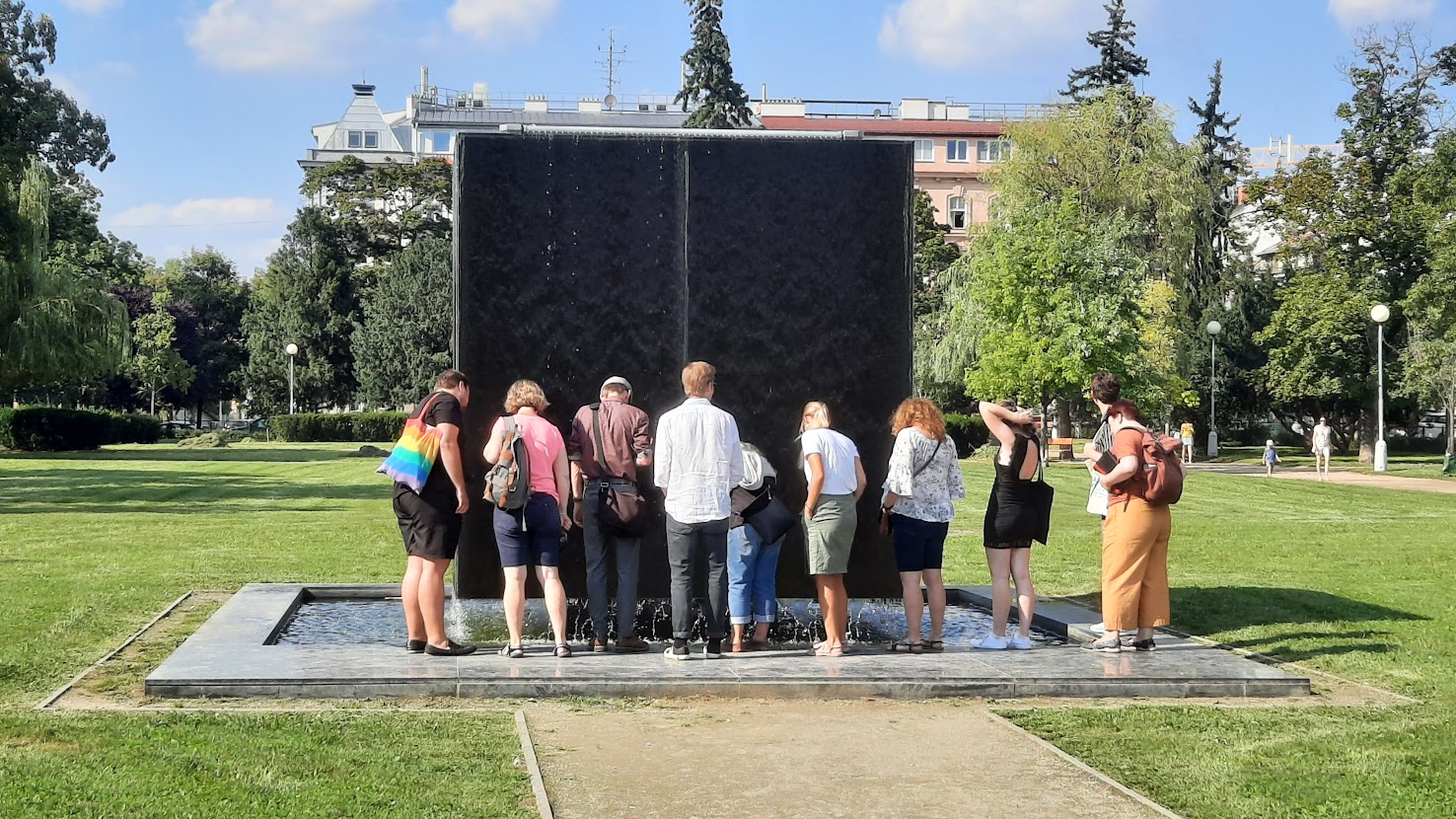
Event 3: International training for trainers and students active contributing in peer-guide programs
- Participation:
The event involved 26 citizens, including 8 participants from Czech Republic, 7 participants from Germany, 4 participants from Slovakia, 6 participants from Netherlands and 1 participant from Austria.
- Location / Dates:
The event took place in Prague, Czech Republic, from 03/06/2022 to 05/06/2022
- Short description:
The aim of the event was to help participants to react in difficult situations, specialy when discriminatory comments are said or situation in group leads to conflict. The second goal was to share experiences and networking in youth group.
The event was originaly prepared in Amsterdam. Due to new pandemic regulations, quarantine of part of team and risk to have whole group of young people in quarantine abroad from their families (when we are also quarantined), led to the decision to quit the training two days before beginning. In that moment the cost wasn't refundable, so we decided to realize Youth training in Prague.
Lecturer Cihan Tekeli from Amsterdam showed us ways of creating dialogue in groups with antagonistic views through the Deep Democracy method. The Democracy in Depth method was developed by Myrna Lewis in the mid-1990s in South Africa after the end of apartheid. The purpose of this method is to facilitate joint discussion in a polarized society. It offers different approaches to the discussion and allows visibility of all existing opinions, including extreme ones. During the training, the participants tried different methods of discussion, problem analysis and search for common conclusions and goals. Among other things, they worked with topics they brought themselves: experiences with racism, sexism, homophobia and discrimination of all kinds.
Event 4: Peer-guide training and international student exchange
- Participation:
The event involved 90 citizens, including 15 participants from the city of Broumov and Police nad Metují, 9 from Teplice, 16 from Nechanice, 16 from Nymburk, 19 from Vlašim and 12 from Řevnice (all Czech Republic) and 3 participants from the city of Liptovský Mikuláš (Slovakia).
- Location / Dates:
The event (training) took place in
Broumov and Police nad Metují (CZ) online, 24/02/2021, 01/03/2021, 10/03/2021, 11/03/2021, 31/03/2021, 12/05/2021
Teplice from 20/09/2021 to 21/09/2021 and 30/10/2021
Nechanice from 10/11/2021 to 11/11/2021 and 23/02/2022
Nymburk from 09/02/2022 to 12/02/2022 and 07/04/2022
Vlašim from 24/03/2022 to 25/03/2022 and 12/05/2022
Řevnice from 03/05/2022 to 04/05/2022 and 16/06/2022
- Short description:
The aim of the event was to train the peer-guides, who as well as visitors will understand the danger of antisemitism, racism and totalitarian regimes and importance of common European values. To that helped the well known story of Anne Frank presented in the exhibition Let Me Be Myself. As part of the three-day training, they devoted two days to how to present the content of the exhibition in the context of the current understanding of the world, how to involve visitors in the tour, and how to deal with situations where visitors make inappropriate comments or behavior.
In Nymburk participated as the co-trainers students from Liptovský Mikuláš. After several last moment canceling due to Covid Slovak participants attended the event online.
The exhibition Let Me Be Myself will continue with former employers of Terezín Initiative Institute and the travel program of the exhibition is covered at least for one school year.
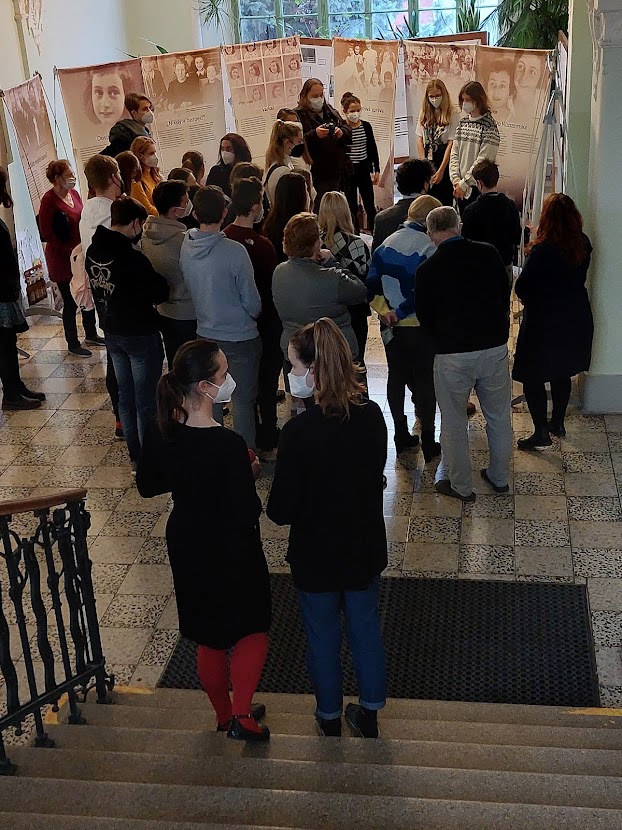
Event 5: Peer-guide training and international student exchange
- Participation:
The event involved 104 citizens, including 101 participants from Slovakia and 3 participants from Czech Republic.
- Location / Dates:
The Anne Frank Youth Network (AFYN) training took place in Bratislava (Slovakia), from 28/04/2022 to 01/05/2022, 16 participants
Peer-guide trainings took place in:
Turčianske Teplice from 28/09/2021 to 30/09/2021, 18 participants
Liptovský Mikuláš from 03/11/2021 to 05/11/2021, 19 participants
Poprad from 08/02/2022 to 09/02/2022, 12 participants
Sečovice from 11/04/2022 to 12/04/2022, 18 participants
Bratislava from 06/06/2022 to 07/06/022, 21 participants
- Short description:
The aim was to train peer-educators in Slovakia, who will peer-guide the exhibition Let Me Be Myself. (description in Event 4) Due to pandemic It was only possible to implement live training in the 2021/22 school year. Currently there is enough schools interested in peer-guide trainings to cover 2 following school years.
The AFYN training was advanced training for students who joined the Let me be myself exhibition. The focus was on developing soft skills and facilitation skills of students in topics of human rights. The students prepared their own voluntary projects that will lead at their schools in autumn 2022. They have chosen topics as local Holocaust history, women rights, child abuse and school parliament development. In the autumn 2022 we plan to supervise and mentor the students.
Event 6: International conference
- Participation:
The event involved 52 Eu citizens, including 24 participants from Czech Republic, 10 participants from Slovakia, 8 participants from Germany, 6 participants from Netherlands, 4 participants from Austria; and 1 participants from USA.
- Location / Dates:
The event took place in Prague, Czech Republic, from 05/06/2022 to 08/062022
The event followed the youth training in previous days.
- Short description:
The aim of the event was to share experiences between experts and people in education process – teachers, trainers and students about polarizing topics and ways how to handle them. They was acknowledged with the ways our peacebuilders and mediators work with polarized situations and how to use this methods in schools.
The central point of the program was a panel discussion.
The invitation to the panel was accepted by:
Zuzana Schreiberová, director of the Multicultural Center in Prague (CZ),
Sasha Lehnartz, Chief Correspondent of Welt and Welt am Sonntag (DE),
Emil Voráč, founder of the Khamoro association for the support of Roma and Sinti (CZ),
Flavio Bollag, executive director of the Outward Bound Center for Peacebuilding in New York (USA).
The discussants talked about their experiences and the causes of the gradual polarization of society. They presented possible approaches to reducing tensions on polarizing issues as they know and use them. Due to the limited time available and the complexity of the topic, only some possible solutions could be discussed. Attendees could listen to the exchange of views of individual guests and also ask them questions about their personal views.
Other interesting guests were the so-called "living books" - people who, thanks to their life experience, because of their origin, sexual orientation or specific needs, often find themselves on one of the poles.
They shared their stories with us
Čenek Růžička - as a member of the Roma minority and a descendant of those who survived the Holocaust, has been campaigning for recognition of the victims of Nazi persecution and compensation since the 1970s.
Veronika Dočkalová - is an LGBT+ activist and co-organizer of Prague Pride. She advocates for the introduction of "marriage for all" and is also dedicated to the mental health of young queer people.
Radana Rutová - In 2013, she had a son who was diagnosed with Asperger's syndrome and ADHD at the age of eight. She spoke about difficulties for parent to find the school who would integrate pupil with his disabilities.
All three "living books" gave us an insight into their individual experiences with discrimination, but also into what gives them hope.
We were received by the Austrian ambassador to the Czech Republic, Dr. Bettina Kirnbauer in a residence in Prague's Hradčany. The ambassador spoke about her experiences in the world of diplomacy and how to find common ground for discussion on difficult topics, the ways to find agreement in the diplomatic world and what to do when when they don´t find conclusion.
On the last day of the conference, participants had time for self-reflection of individual workshops and seminars. Many topics were addressed and feedback provided. In the end participants presented their own projects and plans how to use conference outcomes in education.
The guidelines Finding Ways of Constructive Dialogue in Polarized Societies (pdf)
The guidelines content methods and activities that participants find most useful in prevention or solution of polarisation in youth groups, each part refering to the impact on the youth group experienced. Second part is transcription of panel discussion of experts from nonformal education (Zuzana Schreiberová, CZ; Flavio Bollag, USA), work with intgration of excluded communities (Emil Voráč, CZ) and journalism (Sascha Lenhartz, D) and their answers to publikum.
Participating institutes:
![]()
Three weeks have already passed since the International Youth Forum started in South Carolina, hosted by the Anne Frank Center at the University of South Carolina (USC). Our very own Ani from Afyn.cz was one of the delegates. She has shared her reflections on the experience, what she learnt, and what she will take away from it. Read her report to get a glimpse of the IYF 2025!
It's the middle of summer, and we're bringing you the latest issue of our newsletter, News from Prague. We wish you a wonderful rest of your vacation and enjoyable reading.
This week, a group of students from the US (some with Czech family ties) has visited us as part of their summer school in the Czech Republic organised by the Mestenhauser Institute for International Collaboration (MIIC).
Our GEDENKDIENST-Volunteer Laurenz joined the Alpine Peace Crossing (APC) in Krimml to cross the Austrian Alps in remembrance of the thousands of Jews who fled the antisemitism that was still rampant in Europe after 1945. Laurenz welcomed the team to Jachymka a few weeks ago.
Yesterday we celebrated Anne Frank's legacy in a creative way by showcasing the artworks submitted by talented contributors at Žižcafé Therapy.
On Saturday our GEDENKDIENST volunteer Laurenz welcomed the team of the Alpine Peace Crossing to Jachymka to show them our work.
Alpine Peace Crossing (APC) is an Austrian organization based in Krimml (Salzburg province).
Our Volunteer Laurenz was in Austria last week to promote the GEDENKDIENST program at his former school, the HAK 1 in Salzburg. Speaking to about 60 people from the 4th grade he talked about his experiences and encouraged the students to also use the opportunity to do a Gap-Year with a positive impact. Besides the remembrance work and the work and history of our institute, Laurenz told the students about the challenges and the many wonderful things that come with moving abroad and starting a new job fresh out of school.
We want to thank the HAK 1 business school in Salzburg for giving Laurenz the opportunity to promote the program and the students for their keen interest.









